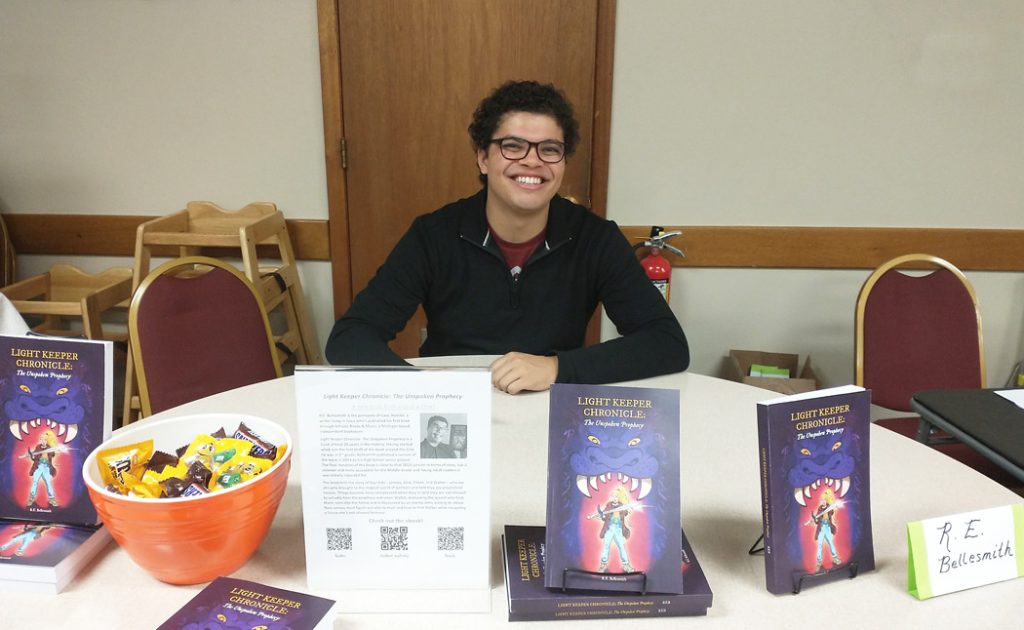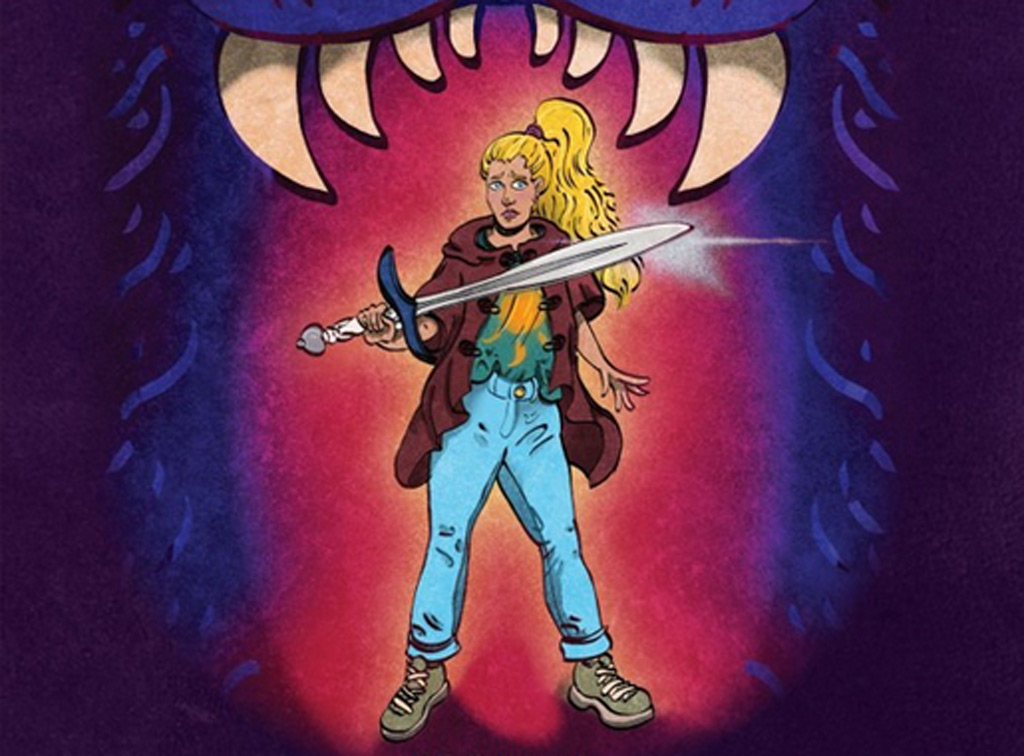
Isaac Hamlet has a story he’s been crafting and recrafting for quite some time. Recently, he self-published Light Keeper Chronicle: The Unspoken Prophecy, the first in a developing series of fantasy novels. Hamlet, a journalist who attended the University of Iowa and now lives and works in Des Moines, answered questions about his saga via email.
You’ve released this book under a pseudonym (R.E. Bellesmith), and my understanding is that it’s an update of a novel you self-published back in 2013. What can you tell me about the origin of the book and your journey to this version?
The clearest point in my memory where I decided to actually start writing happened around the time the 2005 TV movie Twitches with Tia and Tamera Mowry came out. Being the person I am, I decided that if I was going to watch the movie, I would also have to read the book. Since it was grade school, one of my bullies from back in the day made fun of me for reading a book with a girl on the cover, and he insisted that I couldn’t read books with girls on the cover. I can’t remember if I said this out loud or internally, but I decided I would write an action fantasy book with a girl as the main character. While books like Matilda already existed—and the subsequent boom that caused The Hunger Games and Twilight was just around the corner—that exchange led me to lock in my main character, Lenzey, and most of the supporting cast.
Fast forward to the early 2010s: the high school I went to required me to have a senior project in order to graduate. I had been writing and rewriting this book since middle school and had only recently completed a full draft. I figured at the time, “Eh, I’ll finish it.” I think self-publishing was something I told my teacher I’d do somewhat haphazardly. The local bookstore I frequented had just gotten a book press and I figured it would all be pretty straightforward.
About halfway through the year, I had a draft I liked, but I realized the rest was not going to be as straightforward as I’d hoped. My book was too long, I’m famously bad at catching typos, and I still needed to get feedback from beta reads. I kicked around the idea of switching projects or not self-publishing, but I ultimately ended up going through with it. Still, at the time, I knew the book wasn’t really done. . . .
During and after college, I spent a decent bit of time trying to pitch the book to agents for traditional publishing. . . . I realized if I wanted the book to be traditionally published as a middle grade/YA book, it couldn’t be 115,000 words—I’d need to bring it closer to the realm of 80,000. I couldn’t jump around with POV willy-nilly within chapters. . . . I also cut out about a dozen named characters and trimmed foreshadowing for my imagined future books to try to make the story as complete in this text as possible.
Feeling very good about the changes, I dipped my toe back into looking for an agent. Very early on, it became deeply apparent that there wasn’t a ton of interest from agents for the book. . . .
So around August of 2021, I said to myself, “This is a story I love and want to keep working on. . . . I’m going to make a more honest run at self-publishing this.” I made the pseudonym because I write for work and I want to keep this book separate from that writing. . . . I decided to stick with the bookstore I’d used to publish the book, knowing that even if I couldn’t get the book to other sellers, I could at least make sure people in my hometown could walk into a store and pick up a copy.

I’m always interested in the world building and rule setting that seem to me to be part of writing fantasy books. How did you approach creating the world of your story?
There are very few things I like more than world building. Creating a world and then explaining how and why things are the way they are is amazing fun.
Much of what I did for this book for world building was look at the big picture: I had a continent with at least eight factions largely in stalemate or armistice. Meanwhile, one particular power that the wizards do not approve of is gaining power—now some of the wizards are trying to stoke war against this single foe. I loved thinking up how things got to this place and then getting to filter this somewhat complex geo-political situation through four normal kids from our world who suddenly find themselves at the center of it.
What are your overall hopes for this series—both in terms of storytelling and in terms of connecting with readers?
The plan 10 years ago—probably even two years ago—was to have somewhere in the ballpark of eight books. However, that was before I’d committed to self-publishing these, which means I need to be more involved with everything: from editing to cover design to sales. As is, I think five would be a good number to hit.
In terms of connecting with readers. I hope that when most kids pick up the first Light Keeper Chronicle, they read a pretty straightforward fantasy book—with swords and sorcery, good and evil, and fun characters and adventures—but with a little bit of an edge to it. I hope that when older readers pick it up, they see something that is still fun and enjoyable, but maybe has a tinge of tragedy to it. To me, the story is about kids who have to grow up sooner than they expect, but most of them don’t fully realize that’s happening to them. We’ve all been kids in a world that has been dictated by generations past, and we need to find a way to fit in it, and, if we’re lucky, change it. And if we’re really lucky, we change it for the better. This is very much about these kids having to figure out problems they didn’t create and face threats they shouldn’t have to reckon with while they’re still kids—and in a world they’re even more removed from than our own.
